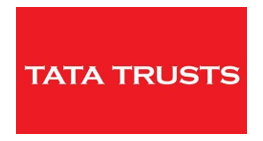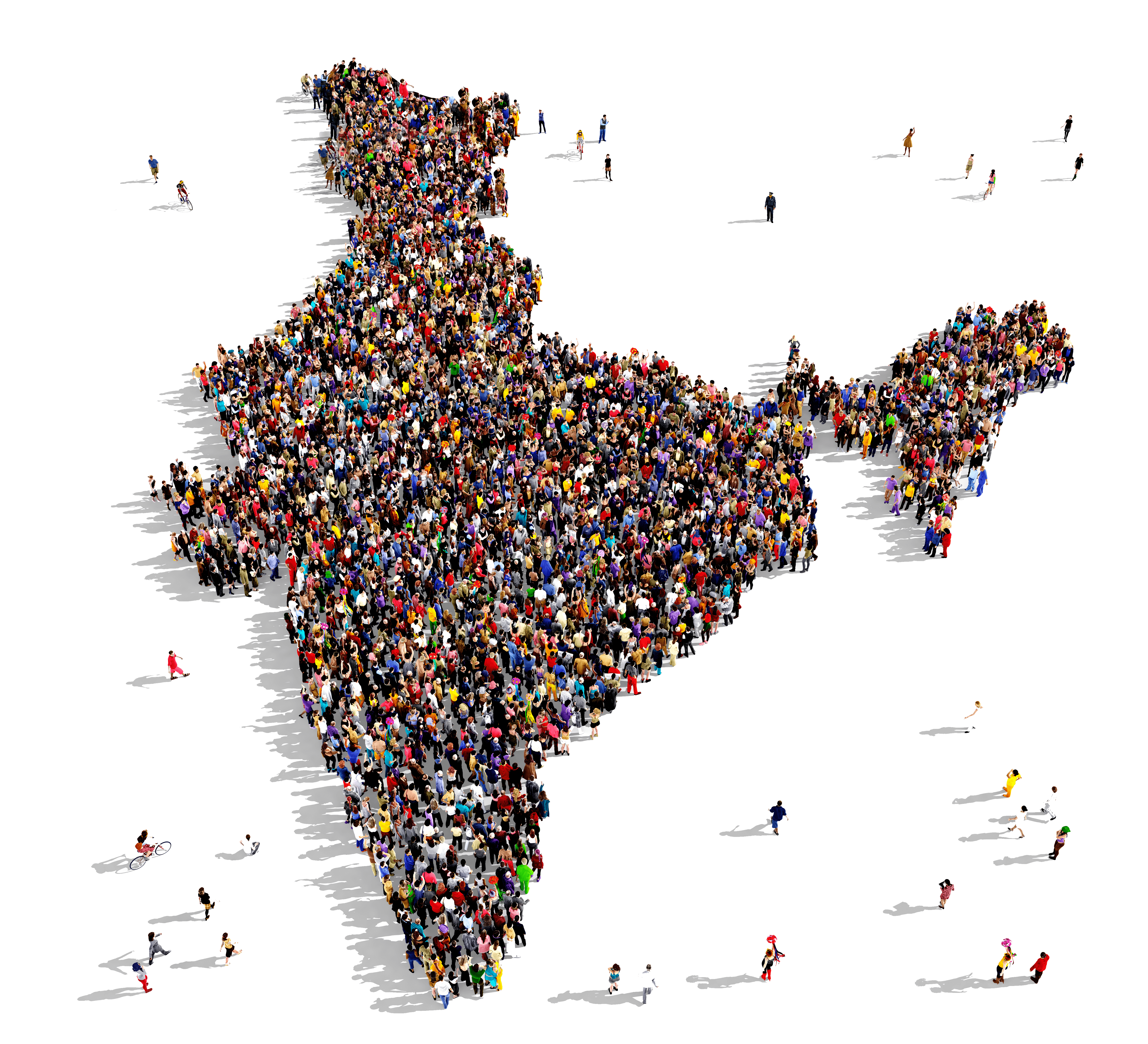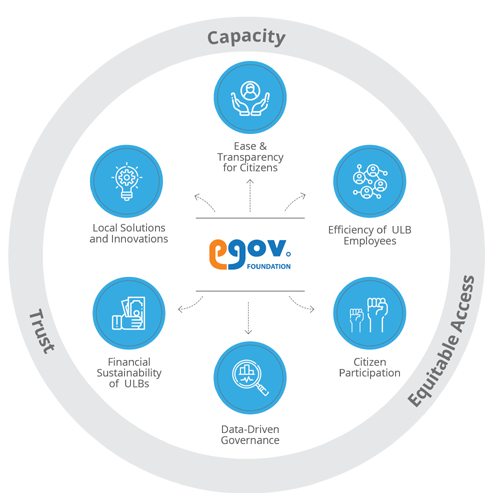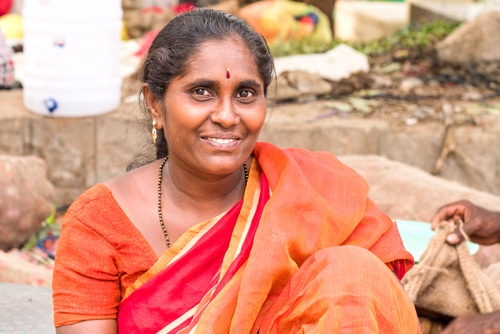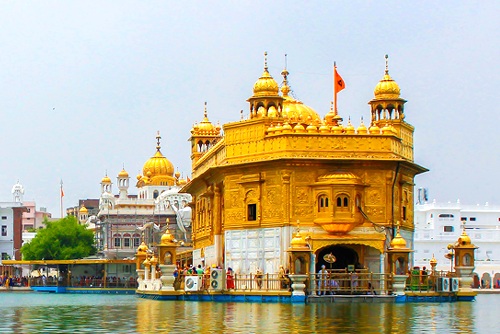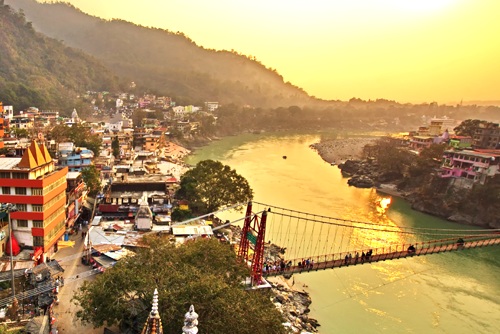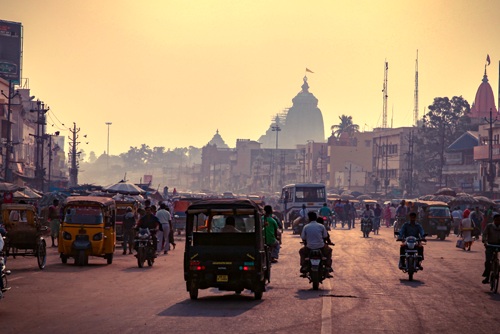
Viraj Tyagi
CEO, eGov Foundation
We exist to improve the quality of life of ordinary citizens across all 4400+ towns & cities in India. The nation is at the cusp of a new revolution, where digital technology is not so much about “digitising and automating” as it is about humans: improving quality of life….

Srikanth Nadhamuni
Co-Founder and Managing Trustee
eGov has been tirelessly working for 17 years with governments, citizens and ecosystem partners to transform urban systems at scale. Our national-scale platform – DIGIT – has already seen great impact in Karnataka, Andhra Pradesh, Punjab, and Uttarakhand….

Nandan Nilekani
Co-Founder
Urbanisation is one of the biggest challenges as well as the greatest opportunities presented to our country today. As our cities grow in size and density, it is essential that local governments make services accessible and inclusive, ensure public spaces are well-maintained…
Key impact indicators of our work

2421
ULBs

>16 cr
Citizens

>35 lakh
Grievances

>₹ 15,000 cr
Total Revenue

>55 lakh
Properties

>40
Solutions
co-created by partners

>2.5 cr
Transactions
on platform

>11,000
Hours of partner
enablement
(As of Oct 2020)
Delivering impact
for all stakeholders
Our most important stakeholders are citizens. The ecosystem of stakeholders that revolves around improving the lives of India’s citizens includes city and state governments, the central government, administrators and front-line employees; businesses and service providers, ranging from major firms to innovative start-ups and social enterprises; academia and research institutions; and community-based and civil society organisations.
eGov seeks to meet the interests of all our stakeholders. Our impact framework is based on the contribution of a public digital platform to transform the experience of living and working in a city for each of these stakeholders.
From building
systems to catalysing
ecosystems
Over the last 17 years, we have gone through 3 key shifts in our quest to create large-scale societal impact.

eGov 1.0 -
Automation
- Automation of process & digitisation of records
- Services like online applications, checking status etc

eGov 2.0 -
Building Systems
- End to digitisation. Integration of data & workflows
- Numerous services like paying taxes, new permits, complaints from a single interface

eGov 3.0 -
Catalyzing Ecosystems
Platformization: Open, modular and interoperable digital platform, enabling seamless access to data and services
Catalyze Ecosystem to come together for impact@scale
- Enhance capabilities of actors -> collaborate and innovate
- Enabling policies, market making & anchor institutions
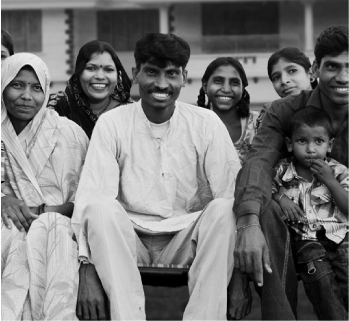
ECOSYSTEM FIRST
Complex societal problems need collaborative,
multi-sectoral solutions.
ECOSYSTEM FIRST
Complex societal problems need collaborative,
multi-sectoral solutions.



What does it mean to say ‘ecosystem first'?
While we believe in the power of technology to enable change, we know that technology is only one piece of the puzzle. To make cities work for citizens requires collaborative efforts that reach across every sector of the economy and society. More importantly, we know that such efforts already exist. Irrespective of whether any e-governance initiative is attempted, there are always some individuals and organisations working to address the challenges and governance gaps they see around them. The ecosystem already exists; our task is to facilitate and amplify their efforts.
When sarkaar and bazaar come together: Creating the COVID e-Pass
As national lockdown started in March, one of the challenges citizens faced was how to travel safely and legally when they had urgent personal reasons to do so. Administration and police personnel on the ground faced the problem of identifying those traveling for legitimate reasons vs. those who should not be permitted to travel. This is exactly the problem we set out to solve; within 72 hours from Lockdown 1.0, the COVID e-Pass system was created – a rapid adaptation made possible by leveraging the DIGIT Trade License solution. Madhya Pradesh became the first state to adopt this system.


A NEW VISION
FOR URBAN INDIA
India’s urban development agenda is
ambitious and urgent
India’s urban population is expected to grow to 600 million over the coming decade. Four in every ten Indians will live and work in our cities and towns. Cities will remain at the forefront of economic growth, with as much as 75% of India’s GDP projected to come from urban areas. Realising the promise of urban India will need concerted, multisectoral, and holistic efforts, focused on rapidly expanding local capacity to solve local challenges.
Awards













Thank you our board members, partners, friends and champions
Our Benefactors
